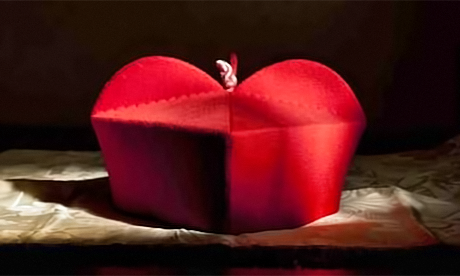Pope Francis has dispensed with tradition and ‘tripped the globe’ to announce sixteen new cardinal electors and because of age, three cardinal non-electors in a consistory to be held on February 22.
In making his selection, the first of his pontificate, Pope Francis has chosen only 6 Europeans (including 4 Italians). Other cardinal electors come from, Latin American (5), African (2), Asia (2) and one from Canada.
Of the sixteen, five cardinals come from parts of the world that suffer from poverty, diseases, violence, natural disasters, and for whom life is a daily struggle.
Significantly, twelve of sixteen are residential bishops that currently govern a diocese.
It is considered traditional that the heads of the nine major Italian dioceses should be cardinals, however Pope Francis has further surprised in by-passing the Turin and Venice archdioceses.
Instead of Turin and Venice, he has given a red hat to the archbishop of Perugia, Gualtiero Bassetti, vice president of the Italian bishop’s conference.
A pastoral bishop, Archbishop Bassetti is considered meek and prayerful man, the qualities the Pope likes in a bishop and whom, recently, he appointed to the Congregation of Bishops
In keeping the European electors to a minimum Pope Francis ‘had’ to appoint four who hold senior positions in the Vatican; Parolin (Secretary of State), Baldisseri (Secretary General of the Synod of Bishops), Muller (Head of the Congregation for the Doctrine of the Faith), and Stella (Head of the Congregation for Clergy).
The other European is Archbishop Nichols of Westminster (England), who like Bassetti was recently appointed to the Congregation for Bishops.
After making the announcement, Pope Francis wrote to each new cardinal reminding them the position should not be seen as a promotion and that it is neither an honour nor a decoration.
He reminded the new cardinals of their role of service, one that requires them to look further and to love more universally and with greater intensity than before.
Pope Francis asked the cardinals to receive the designation with a simple and contrite heart.
Those under 80 years old and eligible to enter a conclave to elect the next pope are:
- Pietro Parolin, Titular Archbishop of Acquapendente, Secretary of State
- Lorenzo Baldisseri, Titular Archbishop of Diocleziana, Secretary General of the Synod of Bishops.
- Gerhard Ludwig Műller, Archbishop-Bishop emeritus of Regensburg, Prefect of the Congregation for the Doctrine of the Faith.
- Beniamino Stella, Titular Archbishop of Midila, Prefect of the Congregation for the Clergy.
- Vincent Nichols, Archbishop of Westminster (Great Britain).
- Leopoldo Jose Brenes Solorzano, Archbishop of Managua (Nicaragua).
- Gerald Cyprien Lacroix, Archbishop of Quebec (Canada).
- Jean-Pierre Kutwa, Archbishop of Abidjan (Ivory Coast).
- Orani Joao Tempesta, O.Cist., Archbishop of Rio de Janeiro (Brazil).
- Gualtiero Bassetti, Archbishop of Perugia-Citta della Pieve (Italy).
- Mario Aurelio Poli, Archbishop of Buenos Aires (Argentina).
- Andrew Yeom Soo jung, Archbishop of Seoul (Korea).
- Ricardo Ezzati Andrello, S.D.B., Archbishop of Santiago del Cile (Chile).
- Philippe Nakellentuba Ouedraogo, Archbishop of Ouagadougou (Burkina Faso).
- Orlando B. Quevedo, O.M.I., Archbishop of Cotabato (Philippines).
- Chibly Langlois, Bishop of Les Cayes (Haiti).
Those over 80 and therefore are not eligible to elect a new pope:
- Loris Francesco Capovilla, Titular Archbishop of Mesembria.
- Fernando Sebastian Aguilar, C.M.F., Archbishop emeritus of Pamplona.
- Kelvin Edward Felix, Archbishop emeritus of Castries.
Sources
